Donation helps SHRP shrink state's histotechnologist shortage
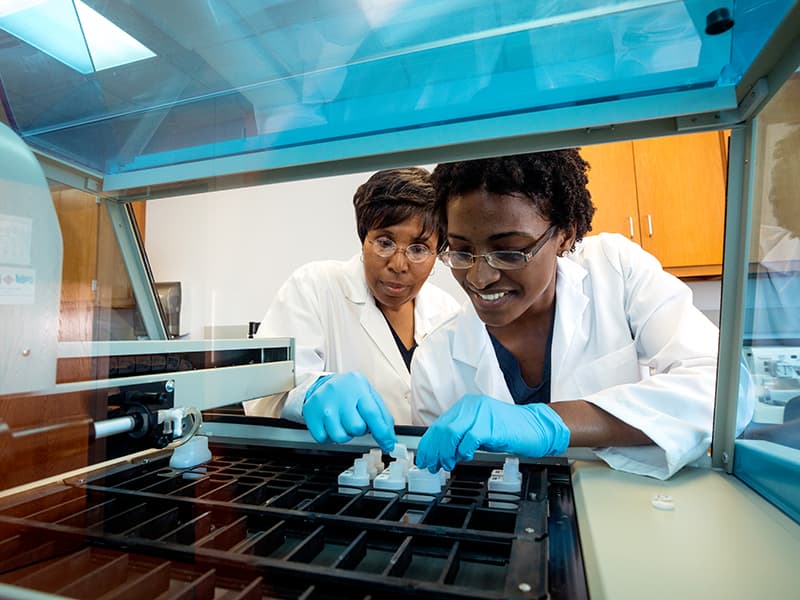
An instructional lab in the School of Health Related Professions at the University of Mississippi Medical Center is the recipient of an Extreme Makeover: Histotechnology Edition.
State-of-the-art refurbished equipment – worth approximately $200,000 – has been donated to SHRP by Thermo Fisher Scientific of Kalamazoo, Michigan, a biotechnology product development company. The donation was coordinated by Dr. Ralph Didlake, associate vice chancellor for academic affairs, with assistance from Kimberly Massey, director of institutional giving in the Office of Development.
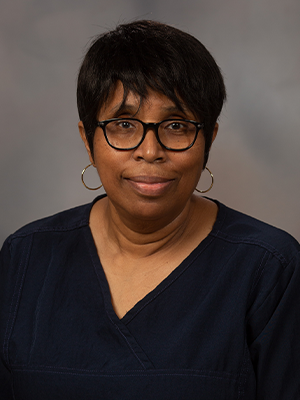
The equipment promises to help the school address a significant need in the state, according to Bevilyn Perkins, instructor in medical laboratory science and educational coordinator of the Histotechnology Program.
“There’s a shortage of histotechnologists in Mississippi,” said Perkins, a longtime technologist in UMMC’s Department of Surgical Pathology. “With the equipment in this lab, we’re excited to help meet the workforce demands in Mississippi.”
After six months of renovation and installation, the histotechnology equipment completely fills a room on the second floor of the SHRP building that had been used as a cytotechnology lab for several years (UMMC graduated its final cytotechnology class in 2016).
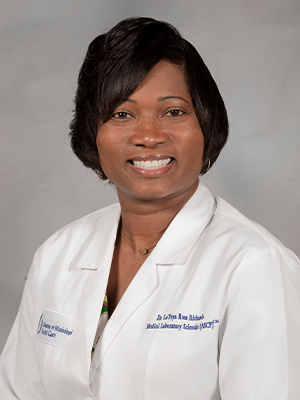
Dr. La’Toya Moore, professor of medical laboratory science in SHRP and chair of the Department of Medical Laboratory Science, said the equipment greatly enhances the school’s ability to properly train histotechnologists.
“Prior to this lab, we really had no way of getting students any type of simulation or hands-on experience with the different types of equipment they will be using as professionals,” Moore said. “Our clinicians at UMMC are so busy and their work is so technical and precise that it’s hard for them to train students simultaneously in the clinical lab (during their final year of training).
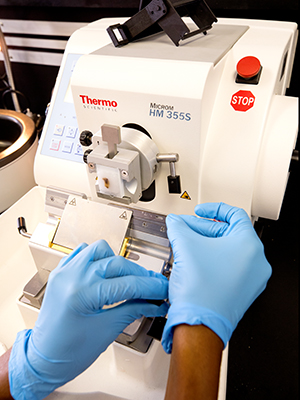
“This lab is going to help them simulate anything they would see on the clinical side and prepare them for whatever they will encounter in their last semester. They’ll really be able to jump in and participate.”
Perkins said the lab is outfitted with everything students need to become successful as professionals.
“Everything we have here in the lab is a duplication of what we have in the real lab platforms,” she said. “As the (histotechnology) curriculum progresses, we train them on each piece of equipment, with the objective for them to be trained on all of it before they go to the clinical setting.”
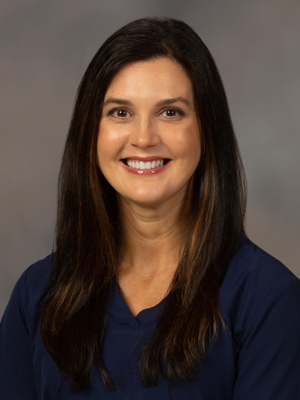
Dr. Renee Wilkins, associate professor of medical laboratory science in SHRP and histotechnology program director, said “histotechnologists are trained to work independently with the different phases and steps of histology.”
“This includes fixation, processing, embedding, microtomy and staining,” she said. “This staining includes routines, special stains and immunohistochemistry.”
The donated equipment includes:
• A tissue processor that prepares the tissue for microtomy by dehydrating, clearing and infiltrating automatically
• An embedding center for tissue orientation and encasing tissue in wax
• Several microtomes for tissue sectioning
• An automatic slide stainer for routine and special stains
• An automatic slide stainer for immunohistochemistry
• A cryostat for cutting frozen tissue for stat expediency
• Printers for both cassettes and slide labeling
• A coverslipper for permanent protection of tissue on glass slides
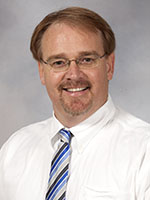
Dr. Mark Gray, associate dean for academic affairs in SHRP, said the equipment may allow the program to build a more collaborative relationship with UMMC histotechnology employees and pathology residents.
“This lab is currently being used for our traditional program, but we’re actively looking at the possibility of employees who work at UMMC and in clinical labs across the state coming here to complete their degrees in histotechnology in some sort of progression or advanced standing program,” Gray said. “The hospital has had a desperate need for certified histotechnologists and this new lab equipment will certainly help us address that need.”
For more information about the histotechnology program in SHRP, visit /shrp/Histotechnology


